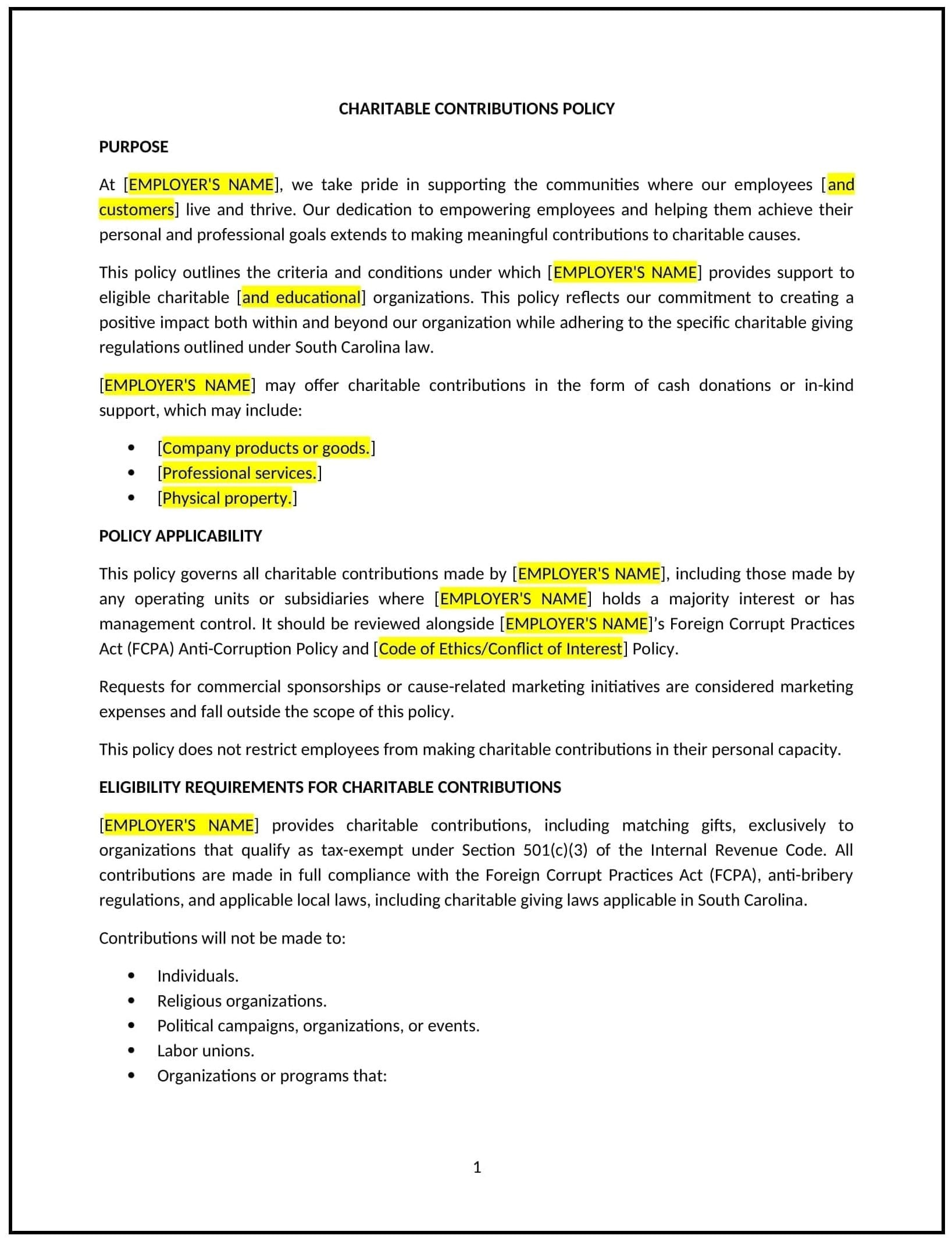Charitable contributions policy (South Carolina): Free template
Got contracts to review? While you're here for policies, let Cobrief make contract review effortless—start your free review now.

Customize this template for free
Charitable contributions policy (South Carolina)
This charitable contributions policy is designed to help South Carolina businesses establish guidelines for donating to charitable organizations. It outlines procedures for selecting charities, approving donations, and ensuring transparency in charitable giving.
By adopting this policy, businesses can support community initiatives, enhance their corporate social responsibility (CSR) efforts, and align with general best practices for philanthropy.
How to use this charitable contributions policy (South Carolina)
- Define eligibility: Specify the types of charitable organizations eligible for donations, such as nonprofits, educational institutions, or community groups.
- Set approval procedures: Provide steps for requesting and approving charitable contributions, including required documentation and decision-making processes.
- Address donation limits: Outline guidelines for the maximum amount or frequency of donations, based on the business’s budget and priorities.
- Ensure transparency: Include measures for tracking and reporting charitable contributions, such as maintaining records or publishing donation summaries.
- Train employees: Educate employees on the policy’s requirements and procedures for requesting charitable contributions.
- Review and update: Assess the policy annually to ensure it aligns with evolving business goals and community needs.
Benefits of using this charitable contributions policy (South Carolina)
This policy offers several advantages for South Carolina businesses:
- Supports community initiatives: Demonstrates a commitment to giving back and supporting local causes.
- Enhances corporate reputation: Builds goodwill and strengthens the business’s image as a socially responsible organization.
- Aligns with best practices: Provides a structured approach to managing charitable contributions and ensuring transparency.
- Boosts employee morale: Encourages employees to participate in charitable activities, fostering a sense of purpose and engagement.
- Provides tax benefits: Ensures donations are properly documented for potential tax deductions.
Tips for using this charitable contributions policy (South Carolina)
- Communicate the policy: Share the policy with employees and include it in the employee handbook.
- Provide training: Educate employees on the policy’s requirements and procedures for requesting charitable contributions.
- Monitor compliance: Regularly review donation requests and records to ensure adherence to the policy.
- Address issues promptly: Take corrective action if donations are mishandled or misallocated.
- Update regularly: Review the policy annually to ensure it aligns with evolving business goals and community needs.